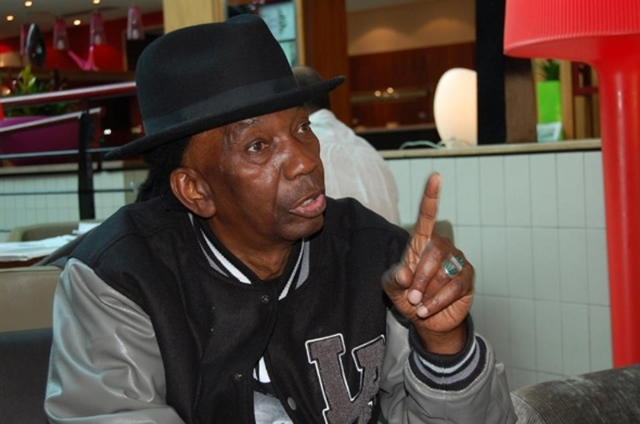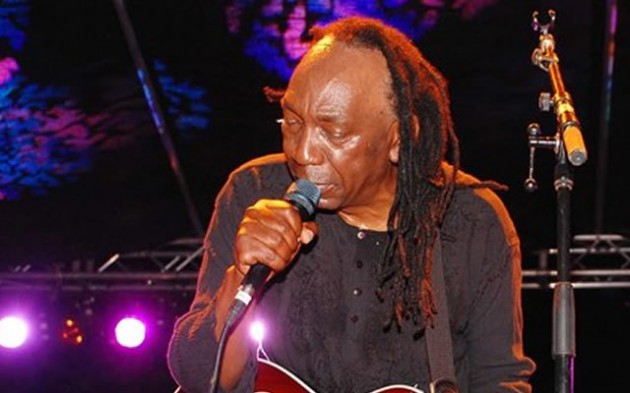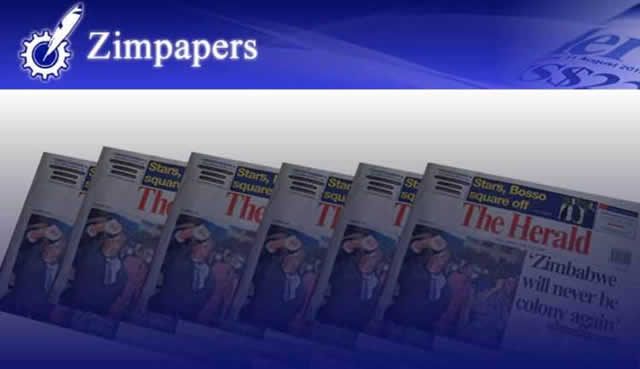Dilemma of music copycats

Godwin Muzari Arts Editor—
At the peak of music competition in Zimbabwe, musicians competed to market their beats and brands. Most musicians created unique brands that were either developed from foreign influences or hinged on traditional beats. The musicians raced to come up with beats that sounded different as they battled for popularity among fans. The sungura beat became the most popular and artistes in this genre were on contest to come up with unique styles around this beat.
It was easy to tell a composer of a song by listening to the first notes of a track. Fans could clearly tell the difference between John Chibadura, Leonard Dembo, Simon Chimbetu, Ngwenya Brothers, Pengaudzoke, System Tazvida and Khiama Boys by just listening to the beginning of a song.
Each musician strived to be unique. It was the same with all other genres and being different was a sign of creativity. However, with the passage of time, creativity seems to be slowly evading musicians and music copycats have invaded the industry.
While in the past it was permissible to have local musicians doing cover versions of Western musicians like The Beatles, Jimi Hendrix and Rolling Stones among others, the trend has shifted to a scenario where local musicians alarmingly copy the styles of their counterparts.
The copycats try to imitate vocals, instruments, dances and even mannerisms of established musicians and this has killed creativity among upcoming musicians. Copycats started gracing our music industry many years ago, but very few succeeded in following the footsteps of established artistes. Local music fans rarely tolerate copycats, yet this crop of lazy musicians keep sprouting in various genres.
Sungura?
As mentioned above, this genre had many competing musicians like Dembo, Khiama Boys, Four Brothers, Ngwenya Brothers and Pengaudzoke among others that were identified by different beats.
However, creativity in this popular genre has massively slumped and most upcoming artistes want to sound like Alick Macheso, who is currently the most popular musician of the genre.
The late Tongai “Dhewa” Moyo started his music by trying to copy Dembo. Others of his era like Shepherd Musekiwa and Mindays Dambadza also tried to take after the “Chitekete” hitmaker but they could not make it because they were merely shadows of a star.
Dhewa regularly stated that Oliver Mtukudzi discouraged him from sounding like Dembo and that was the time he fused the beat with rhumba to come up with a unique style. There was a shift in Dhewa’s music and he created a different brand that was not a directly linked to Dembo’s beat. Dhewa shrugged off the copycat tag and succeeded in his career.
After Dhewa’s success, First Farai tried to imitate the late musician and all he did was expose himself as a shameless copycat because he went on to compose a song admitting and trying to justify his move. Like other copycats, First Farai has fallen by the wayside.
At the peak of his career, Macheso penned the song “Murondatsimba” off his album “Vapupuri Pupurai”, castigating copycats. The lyrics of the song came from a bitter soul and Macheso seemed alarmed that most sungura musicians were taking his route. That was the time when musicians like Njerama Boys and Somandla Ndebele had adopted a beat similar to Macheso.
Critics were right to attack Macheso for being over-protective with his style and he stopped playing the song at live shows. However, the copycats did not last long because they exposed themselves to direct competition with Macheso and they did not win the battle.
Then a new crop of upcoming musicians taking after Macheso emerged and in this bracket are the likes of Romeo Gasa, Simon Mutambi and Obvious Mutani. The youngsters have failed to make it because they try too hard to sound like Macheso. They are talented but they have failed to show creativity and fans have brushed them aside as mere copycats.
Although Jah Prayzah is not in the sungura genre, he is a good example of a musician who created his own beat and won the hearts of music followers. Now, copycats are after him and chief among them is Andy Muridzo who tries very hard to sound like Jah Prayzah.
He has gone to the extent of purchasing dreadlocks to assume a hairstyle similar to Jah Prayzah’s. His latest album sounds like a Jah Prayzah project and his choreography is also hinged on copying.
Despite having many sympathisers, Muridzo will not make it unless he modifies his beat to create a different identity.
Dendera
Dendera music is part of sungura, but its pioneer, the late Simon Chimbetu, popularised the beat and won multitude of fans through his unique style. Dendera became more of a family genre as many musicians from Chimbetu family pursue the genre. Simon initially worked with his brother Naison before they parted ways and the latter formed his G7 Commandos that did the hit “Dr Nero”.
The late Briam also played dendera. Currently Allan, Suluman, Tryson and Douglas are the musicians in the family that pursue the beat. Dendera has become a family genre to the extent that all Chimbetus want to pursue the style. Unfortunately, all the musicians have exposed themselves to being compared to Simon, the godfather of the beat, and that has compromised their potential.
At the moment Sulu is the most popular in the genre, but he is always compared to his father.
Other family members are struggling to make an impact because they are all fighting for the same cake. This obsession with dendera among the Chimbetus is also stifling creativity because everyone wants to sound like Simon. Even Saiwe, the female musician from the family who is pursuing gospel music, has not been able to completely divert from the dendera beat
There are also other musicians outside the Chimbetu family that have unsuccessfully tried to follow the genre. Joe “Local” Nyamungoma, who is now Sulu’s publicist once tried his luck in the genre with his Ekhaya Direct Band but he could not go further than his debut album “Mhoroi Mhoroi”.
Simon’s nephew Richard Sakala is also doing dendera music, but he remains on the periphery of the greater music industry because he exposed himself to direct comparison. Chamu Boroma tried to attract attention by claiming that he is Simon’s forgotten son, but the trick could not help him market his dendera music and he has gone silent.
Now, another dendera musician Nyasha Mugari — who parted ways with Tryson — is in a bid to announce his arrival on the music scene. He has also been condemned as a copycat and it will likely be impossible for him to be known.
Chimurenga
When chimurenga master Thomas “Mukanya” Mapfumo heard about the late Farai “Pio” Macheka, who was also doing the genre, he felt alarmed and there was a clash between the musicians. Although he made initial strides with “Karinga Wangu” and “Muchandiona”, Pio could not last the distance and by the time of his death in 2008, he had fizzled out because he would always be compared to Mukanya.
The late Robbie Chagumuka appeared to be a threat to Mukanya when he came with force. Unfortunately, fans only gave him attention to a certain level and by the time of his death, he was no longer the same.
Bryn Taurai Mteki also tried to get his share on the local music industry through chimurenga. He has now taken a back seat in music and decided to concentrate on sculpture. His debut album “Kurauone” introduced him to the music industry with punch and he even attracted the attention of late national hero Elliot Manyika for a collaboration, but he could not make it beyond that mark.
Although Mukanya has apparently left a gap in chimurenga because of his self-exile, the chasm has proved hard to fill. Currently, Jairos Chabvonga is trying his best in the genre yet he remains a small fish in the art because every chimurenga musicians will be compared to Mukanya.
Gospel
This is the genre that had talented pioneers like Jordan Chataika, Mechanic Manyeruke, Brian Sibalo and Family Singers among others. All the musicians had different beats and could easily be identified with their brands. Then came a crop of musicians that copied so much from South Africa. Mercy Mutsvene was the main culprit in this trend as she literally translated Rebecca Malope’s songs to Shona and copied her beats and tunes.
Besides controversy in her personal life, Malope’s revelation that she did not have any arrangement with Zimbabwean musician dealt a blow to Mutsvene’s career and she has now faded.
Kudzi Nyakudya came under heavy criticism for sounding like SA’s Lundi Tyamara. Although he initially had attention, fans later got fed up, forcing Nyakudya to turn to hymns and choruses that he now specialises in.
There was also Trymore Bande who came under fire for being a Charles Charamba copycat. The musician’s album was at one stage sold as Charamba’s new release and the musicians clashed over the issue.
Bande has a good voice but could not make it in the gospel scene because he tried to be like Charamba. Then there is a case of Blessing Shumba and Mathias Mhere, which almost confused music fans. The musicians used an identical beat and their producer Lyton Ngolomi was blamed for making them sound similar.
The musicians later partially modified their beats, but Mhere almost suffered the consequences of being labelled a Shumba copycat. That is the case with the local music industry. Anyone who tries to sound like an established musician will be labelled a copycat and it will be difficult for them to breakthrough.
Copying another musicians is a serious sign of lack of creativity and aspiring musicians should try to create their own brands.














Comments